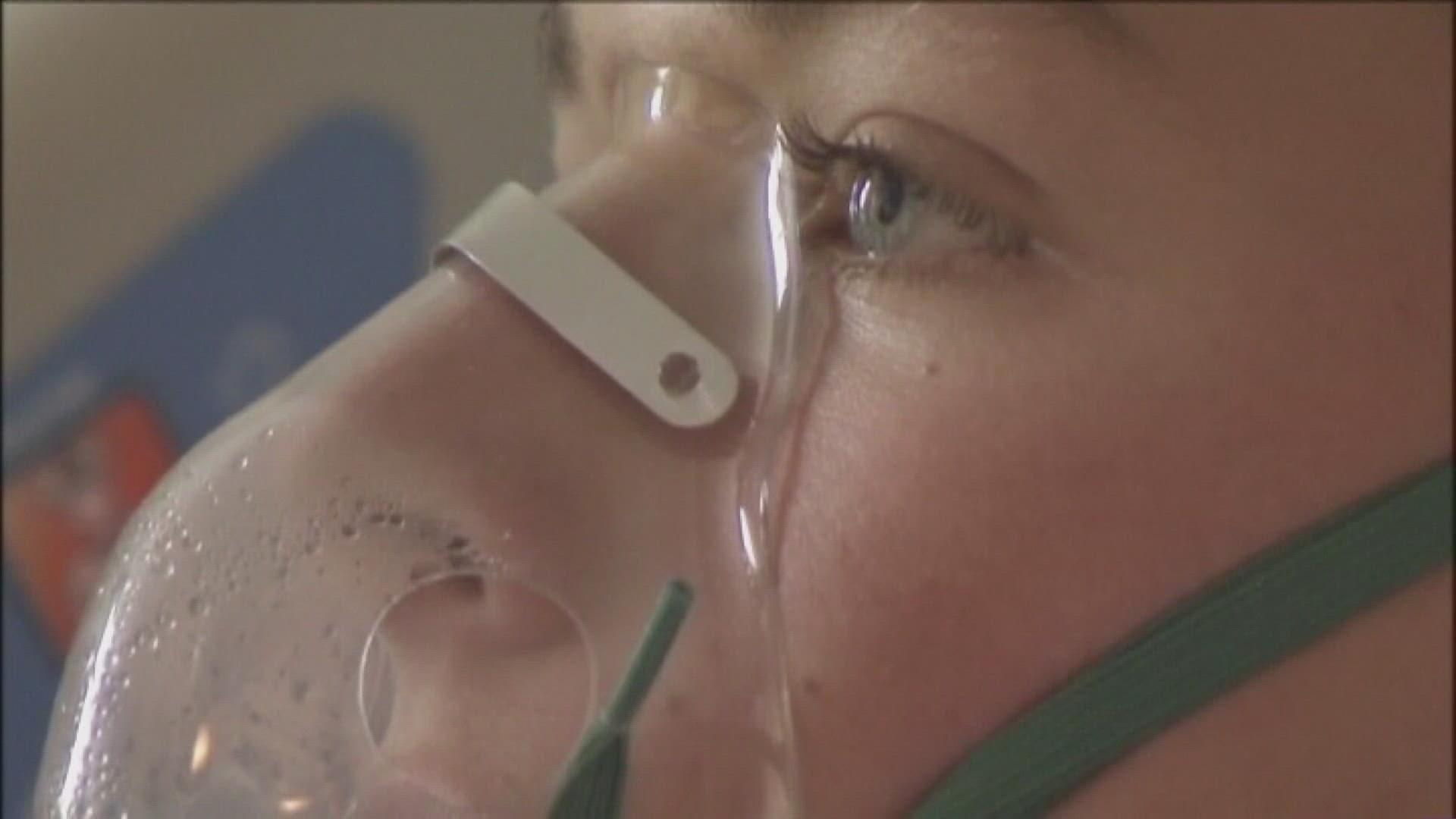NEW ORLEANS — The colder temperatures are here and as the colder months creep in so do unwanted germs and bacteria causing us to get sick. Doctors are warning that this is the latest respiratory illness that is impacting our most vulnerable babies and the elderly.
Cases of Respiratory Syncytial Virus, commonly known as RSV is like any other common virus you can catch, but cases are spiking and doctors say hospital beds are filling up.
Dr. Cherie Burke, Director of the School of Nursing at Loyola University, says nationwide every four in 1000 babies under 6 months old are being admitted for RSV. “The children’s hospital in New Orleans has seen an increase in the number of children being hospitalized," said Dr. Burke.
She went on to say, “Most children are exposed to RSV by their 2nd birthday, we have this group of children three to four have been social distancing wearing masks, who have never been exposed to RSV.”
She says this surge is another repercussion from the pandemic, because of social distancing, RSV wasn’t being transmitted between kids and they weren’t able to build immunity so now they’re experiencing much more severe symptoms.
“You’re going to need to be intubated, where they out a breathing tube into your child’s windpipe and put them on a ventilator to help assist with their breathing," said Dr. Burke.
Dr. Giovanni Piedimonte, Vice President for Research at Tulane University agrees, he says while it’s the most common respiratory disease in young children, there’s no cure or vaccine, “Last year we observed a very interesting phenomenon which is when covid spiked RSV actually went down in the community and almost disappeared," said Dr. Piedimonte.
He went on to say, “The antibiotics don’t work… even the medications we give to asthmatic children they don’t work, cortisone/steroids they don’t work, once the infection is established, there is nothing to do but support the baby.”
Dr. Burke says there are signs parents can watch for, she says, “You’ll start to notice their nares, areas on their nose will start to flare, they might start to grunt, their whole chest moving when they’re trying to breathe… you’ll see retractions in their rib cages because that’s air hunger.”
Dr. Piedimonte says this winter will be the first year we have COVID-19, the flu, and RSV floating around in our community. He predicts we could see cases of all three spike between December and January.
According to the CDC People infected with RSV usually show symptoms within 4 to 6 days after getting infected. Symptoms of RSV infection usually include
- Runny nose
- Decrease in appetite
- Coughing
- Sneezing
- Fever
- Wheezing
► Get breaking news from your neighborhood delivered directly to you by downloading the new FREE WWL-TV News app now in the IOS App Store or Google Play.

